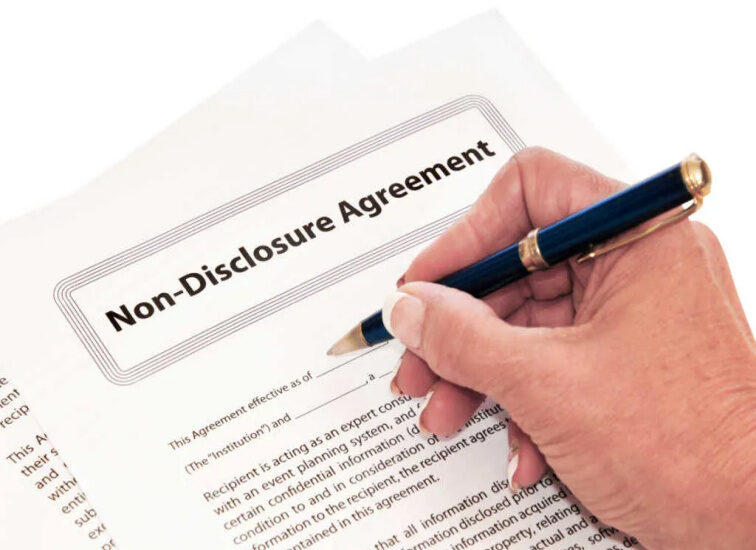
KJIPUKTUK (Halifax) – Amy (not her real name) is sexually assaulted by a male colleague at a work-related party. Amy is traumatized. She complains to the Human Rights Commission. The Commission brokers a settlement offer by the employer that includes a sum of money. Amy also has to sign a promise to never say anything to anybody about the case, the employer, the events – ever. The perpetrator moves on to another job somewhere, where nobody knows about his past behaviour.
This gag order is called a non-disclosure agreement. Right now it’s perfectly legal in Canada. And it happens all the time.
Some argue that everybody wins. The complainant gets some compensation. The perpetrator and the employer are protected from all the bad publicity. And the Human Rights Commission gets to chalk up a “victory.”
But it’s a big defeat for the cause of justice. It’s as if the bad incident never happened.
Two fundamentals of our human rights justice system are a) public disclosure of serious social problems and their resolution and b) general deterrence. Non-disclosure agreements corrupt both those laudable goals. NDAs are especially toxic in matters of public protection, like industrial health and safety, pollution, and sexual predation.
Zelda Perkins is a British theatrical producer who worked for the notorious Harvey Weinstein. In 1998, when she complained about Weinstein’s rape of a colleague, both Perkins and the colleague agreed to a settlement and signed a non-disclosure agreement. Twenty years later, to assist in the rapidly-breaking #MeToo movement revelations, Perkins went public and broke the NDA, risking personal calamity.
Perkins spoke recently at a webinar organized by Nova Scotia human rights advocacy organization Equity Watch (www.equitywatch.ca) with which we are associated. In a thoroughgoing critique of the human rights regime that Equity Watch published in January 2021, we condemned the proliferation of NDAs. We and others are launching a national and international campaign to bring public attention to the despicable practice of NDAs.
Another speaker at the Webinar was Dr Julie Macfarlane, a University of Windsor (Ontario) law professor, Order of Canada recipient and noted practitioner and author on mediation. Macfarlane herself has been embroiled in an NDA controversy. The agreement was between her University and an ex-professor dismissed for sexual improprieties with students. In return for the perpetrator leaving his job, the employer agreed to seal all references to the incident and say nothing.
Macfarlane, contacted by another university for a reference, told the truth. The perpetrator sued her for defamation. Though not personally party to the non-disclosure agreement, Macfarlane was unable to access the secret letter of dismissal to defend herself. She relates this and other details in her recent book Going Public: A Survivor’s Journey from Grief to Action (Between the Lines, 2020.)
Some small progress is being made. Some students have successfully sued US universities for failing to protect them from sexual predators. Several US states have legislation disallowing NDAs in matters of public safety. The lawyers’ regulatory agency in England and Wales (like our Barristers Society) has issued a cautionary note about the use of NDAs. However, across Canada, public institutions such as universities, school boards, hospitals, and government departments — as well as private-sector employers, use NDAs to cover serious and sometimes criminal wrongdoing by employees, administrators or management.
Real change will require nothing less than a shift in the way lawyers and the legal system think and operate. NDAs are really only a few decades old, first introduced to protect intellectual property of tech companies. But the practice has migrated to what one legal scholar calls “the privatization of public law.”
Settlements in human rights cases can be helpful. And some minimal guarantees of confidentiality may well be needed. But blanket gag orders subvert the cause of justice and must be stopped. They are a rot at the heart of human rights.
Judy Haiven is a retired professor of Management at Saint Mary’s University. Larry Haiven is Professor Emeritus at Saint Mary’s University. They are both on the steering committee of Equity Watch.
See also: Equity Watch calls for a completely revamped Human Rights Commission
Check out our new community calendar!
With a special thanks to our generous donors who make publication of the Nova Scotia Advocate possible.
Subscribe to the Nova Scotia Advocate weekly digest and never miss an article again. It’s free!




Hi.
Thank you for this great article. I completely agree with all you have said. I am a Canadian citizen & resident of Ontario. I am a victim office altering crimes which have left me permanently disabled, & suffering a fate worse than death for the past 5.5 years. I first contacted the police in 2016 via crime stoppers out of concern for my safety. I finally worked up the courage to call the police to file a report in person. The crimes committed against me that have destroyed my life include admission of a noxious substance (without my informed consent) as well as bodily harm caused by criminal negligence. The police told me they had never heard of the illegal drug & thus did not have the resources to investigate, in spite of my being permanently disabled. Ultimately I had no choice but to file a civil complaint at the end of 2017 when I could no longer afford medical therapies to help mitigate my suffering, hadn’t been able to work in almost 2 years & would likely never be able to work again, not to mention the pain & suffering. In spite of one of the defendants getting caught committing significant perjury under oath & substantial evidence, my lawyers dropped my claim, seemingly deciding that the time consuming unethical tactics of the defendants aggressive lawyers was not worth their time & the defendants would never settle, & judgements are hard to enforce. This has left me forced to try to fight for my life while severely disabled against all odds. I’m going to try to settle with the defendants one last time, as I am going to the media & am posting all evidence for the shocking story of what they did to me online along with a plea to the public to sign my petition to have the police finally do their job, & for a boycott of the defendants multimillion dollar company, as well as advertise a coming documentary on my story. There is a chance the defendants might settle as this would be far more damaging for them than paying me a settlement. It remains to be seen.
I am desperate to settle as I am so tortured on a daily basis by the mental & physical damage done to me I have almost ended my life on many occasions. I desperately need treatments. Additionally, I cannot even afford basic survival expenses and the walls are closing in.
Having said this, it weighs on me heavily that these evil people may get away with what they did without criminal Justice which I should have had the chance to get first & foremost. There were other victims after me.
I only recently discovered it is still within my right to contact police & report the crime, I was under the impression after they said no that was it.
If I am able to settle, if I sign an NDA am I still allowed to report the crime to the police? Are they legally allowed to include a provision in their settlement agreement that I am barred from reporting their crimes, or is that not permissible by law?
I feel I will go insane if I do not again try to do my civic duty to ensure these people don’t destroy or even end any more innocent lives (I almost died in the defendants care after he did what he did to me, then he refused me medical treatment for 3 days & I ended up hours from death on life support).
In short, are clauses in NDAs that require people to not report the crimes of the defendants in their civil claims legally valid in Canada?
Thank you so much for taking the time to read my comment / question.